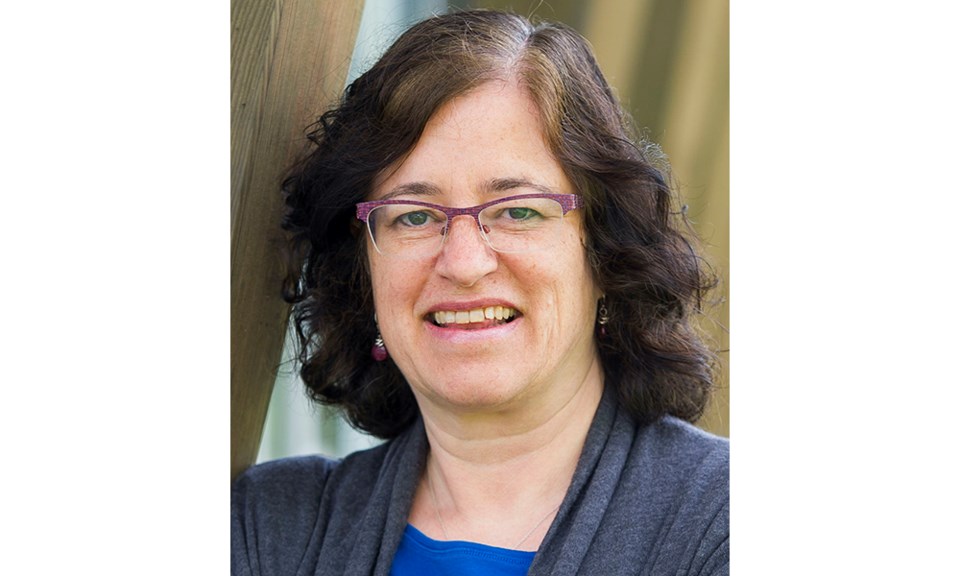We are living in perilous times — the trifecta of a pandemic, climate change and a war involving superpowers surely qualifies — and making it through is going to require fortitude, resilience and love.
Several unrelated events this week made that very clear. First, the University of British Columbia hosted an event about education and climate change, second, the provincial government released an action plan to enhance Indigenous people’s rights, and third, B.C.'s Representative for Children and Youth released a report about discrimination against some Indigenous children.
Author Naomi Klein and her husband, filmmaker Avi Lewis, both now teaching at UBC, spoke at the event about climate justice and educational responsibility.
Climate anxiety, coupled with other events like the discovery of unmarked graves at residential schools or the housing crisis or food insecurity, intensify all our emotions. Inequality, Klein said, “makes the impact of the climate crisis much more deadly and more socially divisive.”
Lewis said educators have a responsibility to provide a response to students’ anxiety and grief and that offering stories about the future is one way to do that by making transformative change easier to imagine.
Learning about climate champions like Greta Thunberg or Anishinaabe water activist Autumn Pelletier can spur confidence.
“Having those stories makes a huge difference in terms of young people feeling like they can change the world,” Klein said.
We need to try new things, like using music and art to start emotionally dealing with the climate crisis, rather than keeping it in our heads, Klein says.
“I think we need all the tools to honestly break our hearts open,” Klein said.
The idea of breaking our hearts open aligns with something Chief Jerry Jack, from the Mowachaht/Muchalaht First Nation, said at the provincial government announcement this week of the action plan to further the province’s 2019 implementation of the Declaration on the Rights of Indigenous Peoples Act.
He spoke about communities dealing with COVID-19, wildfires and floods and how important it is to work together.
“If we are to be a part of the transformational change and face the challenges of our generation with integrity, wisdom and love, we must all work together,” he said. “Love is a strong word. That’s how we have to treat each other, even if we have disagreements.”
Jack was among several Indigenous leaders who spoke in support of the action plan, reported to be the first of its kind in the world, many saying working together is crucial to progress.
Premier John Horgan said it too.
“Working together we can do almost anything,” Horgan said. “If we continue to fight with each other, if we continue to disagree in the moment, we will fail.”
Disagreements are inevitable, he said.
“But that doesn’t take away from our mutual commitment to each other to do everything we can — our level best — to make British Columbia a better place for the children, Indigenous and non-Indigenous, who should be, by right, inheriting a province and a world that is better than the one we inherited.”
Which brings me to the third announcement.
B.C.’s Representative for Children and Youth reported that child welfare funding in B.C. discriminates based on whether a child lives on or off reserve and who they are served by.
“The findings of this report are troubling,” said representative Jennifer Charlesworth. “This leads to gaps and inequities that have no place in a province committed to reconciliation.”
Horgan spoke about learning from both the sorrow and the joy of the past, working together to make a better world for children, even mentioning the unmarked graves found near residential schools, but meanwhile, today’s Indigenous children are being discriminated against, right here in B.C.
Children’s minister Mitzi Dean said a new fiscal framework will ensure Indigenous children, youth and families in B.C. are supported no matter where they live.
"We know there is still much more for us to do together,” Dean said.
There’s that phrase again: together.
Working together is crucial, yes, but until the inequities Charlesworth revealed and other injustices are dealt with, it won’t be possible to achieve true reconciliation or tackle climate change. If we are going to talk about love and working together, basic human rights must be addressed first. Inequality and discrimination will only make things worse.
Tracy Sherlock is a freelance journalist who writes about education and social issues. Read her blog or email her [email protected]



